Ryoji Noyori Prize
Professor Thorsten Bach
Professor of Organic Chemistry, School of Natural Sciences and Catalysis Research Center, Technische Universität München

Professor Bach is the pioneer of enantioselective photochemistry and one of the leading experts in the field. He and his group showed successfully that chirality can be introduced by photochemical transformations, both in a stoichiometric and a catalytic sense. By using hydrogen bonding interactions, a temporary chiral confinement was created in which photochemical reactions proceeded with high enantioselectivity. Bach established the use of chiral Lewis acids for catalytic photochemical reactions, and he successfully devised chiral sensitizers as catalysts for visible light-induced asymmetric photochemistry. In recent years, he demonstrated that photochemistry can be employed to convert racemic mixtures into single enantiomers (photochemical deracemization) employing either a selective triplet energy transfer or a reversible hydrogen atom transfer as vehicle to facilitate the counter-thermodynamic process. His creative ideas and his ground-breaking research accomplishments have taken photochemistry to the next level of complexity.
Professor Kenso Soai
Professor Emeritus, Tokyo University of Science, Japan

Professor Soai made a groundbreaking discovery in the realm of chirality by identifying the first instance of asymmetric autocatalysis involving 5-pyrimidyl alkanol in the enantioselective addition of diisopropylzinc to pyrimidine-5-carbaldehyde, called as the Soai reaction. Asymmetric autocatalysis is a reaction in which a chiral product serves as a catalyst for its own production. The Soai reaction exhibits the remarkable capability to significantly enhance the enantiomeric excess of the initial asymmetric autocatalyst, transforming it into a near-enantiopure compound during the consecutive asymmetric autocatalysis. Furthermore, his research delved into the origins of chirality, using various chiral triggers within the Soai reaction to relate to the chirality of highly enantioenriched organic compounds. The Soai reaction was found to be triggered by diverse factors, including chiral minerals, circularly polarized light, chiral crystals composed of achiral compounds like γ-glycine and isotope chirality. Most astonishingly, the Soai reaction demonstrated the ability to achieve spontaneous absolute asymmetric synthesis without any external chiral factors. Thus, Professor Soai has made invaluable contributions to the study of chirality.
News Release: -The Winner of the Prize for the award year 2023
Professor Gregory C. Fu
Norman Chandler Professor of Chemistry, Division of Chemistry and Chemical Engineering, California Institute of Technology, USA.

Professor Fu has made important contributions to the development of new synthetic methods based on his original design of catalysts and reactions. Fu designed planar-chiral nucleophilic catalysts by fusing DMAP to ferrocene for a variety of asymmetric reactions as represented by acylative kinetic resolution. This achievement, where nitrogen atoms in designed catalysts function as a “working element” in asymmetric catalysis, served as an early contribution to the field of “asymmetric organocatalysis”. Fu’s research interests also include transition-metal catalysis. He established a way to utilize unreactive chloroarenes in Pd-catalyzed sp2–sp2 cross-couplings using tri-t-butylphosphine as a ligand. Fu then turned his attention to asymmetric sp3–sp3 carbon–carbon bond-forming cross-couplings using chiral nickel catalysts. His work on enantioconvergent reactions of racemic electrophiles is particularly notable. Fu also succeeded in asymmetric sp3 carbon–heteroatom bond-forming cross-couplings using chiral copper catalysts under irradiation of light. Unlike conventional transition metal/photosensitizer binary catalyst systems, his system needs only a single catalyst. Fu’s achievements are admired not only for their superb profiles and the uniqueness of the individual reactions, but also for their role in pioneering new research fields and applications in organic synthesis.
Mukaiyama Award
Weldon G. Brown Professor of Chemistry Guangbin Dong
Department of Chemistry, University of Chicago, USA

Contributions: Research in the Dong group focuses on developing new and synthetically useful transformations. First, his team explores catalytic C-C bond activation as a useful tool for constructing or modifying complex molecular skeletons. Additionally,Dong is a leading contributor to the palladium/norbornene catalysis, which enablessite-selective arene functionalizations and carbonyl transposition. Moreover, the Donggroup has pioneered new activation modes for functionalizing C-H bonds of carbonyl compounds. Finally, his work in boron chemistry lays the foundation for programmable organic synthesis.
Professor Kohsuke Ohmatsu
Faculty of Science and Technology, Keio University, Japan
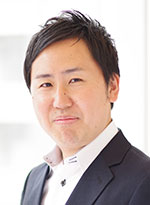
Contributions: Research led by Ohmatsu has focused on designing ionic molecular catalysts to address challenges in synthetic organic chemistry. By leveraging the unique properties of ionic organic molecules to construct chiral architectures, a novel strategy for catalyst design has emerged, enabling previously difficult asymmetric transformations. The concept of photocatalytic reactivity of ions has created a groundbreaking platform for both innovative reaction development
Professor Ryan A. Shenvi
Department of Chemistry, Scripps Research, La Jolla, CA, USA
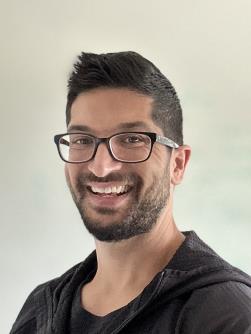
Contributions: The Shenvi group is known for its innovations in complex synthesis and catalysis, especially the hypothesis that metal hydride hydrogen atom transfer (MHAT) is more widespread among base metal catalyzed reactions than previously appreciated. Research in Shenvi’s laboratory spans mechanistic study, method development and total synthesis, as well as biological investigation via collaboration with other groups. The Shenvi group has also introduced a different view of the field of natural product synthesis, where they are considered leaders.
Professor Junichiro Yamaguchi
Department of Applied Chemistry, Waseda University, Japan
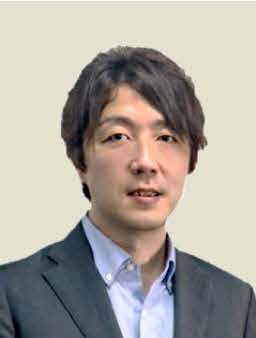
Contributions: Towards create complex molecules, Yamaguchi focused on the commonly used functional groups and aromatic rings found in organic compounds and developed catalytic transformations to break them. The research directed by Yamaguchi has created a new trend in synthetic organic chemistry, including common functional group-cleavage couplings, bond exchange reactions, and catalytic dearomatization functionalization using unique molecular catalysts.
Professor Sarah E. Reisman
Bren Professor of Chemistry Division of Chemistry & Chemical Engineering, California Institute of Technology Pasadena, CA, USA
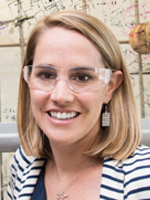
Contributions: Research in the Reisman laboratory seeks to advance the science of chemical synthesis, through synergistic contributions in both strategy design for natural product synthesis and reaction development. Reisman is recognized as a leader in the area of natural product synthesis, where her group has contributed new strategy-driven approaches several complex highly oxidized natural products. In addition to her program in natural product synthesis, Reisman has made impactful contributions to the rapidly advancing field of Ni-catalysis, with an emphasis on asymmetric reductive cross-coupling reactions.
Professor Naoya Kumagai
Graduate School of Pharmaceutical Sciences, Keio University, Japan

Contributions: The development of synthetic methodologies driven by cooperative catalysts, unique heterocycles, and quinoline oligomers. The research directed by Kumagai has focused on the development of novel metal-based cooperative catalytic systems that have allowed for otherwise infeasible catalytic asymmetric transformations to proceed. His insatiable curiosity into catalyst design has provided a novel class of proficient catalysts utilizing boron-containing exotic heterocyclic entities. His research interests have expanded to the investigation of quinoline-based aesthetic molecular architectures, which pertain to diverse areas of chemistry research.
Professor Neil K. Garg
Department of Chemistry & Biochemistry, University of California, Los Angeles, U.S.A.

Contributions: The development of synthetic methodologies using unconventional building blocks and innovation in the synthesis of complex molecules.
Professor Naohiko Yoshikai
Graduate School of Pharmaceutical Sciences, Tohoku University, Japan
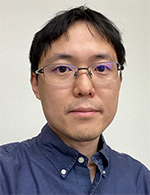
Contributions: The development of novel organic transformations, such as C-H functionalization and carbo- and heterocycle formation, through the discovery of unique reaction chemistry of abundant elements.
